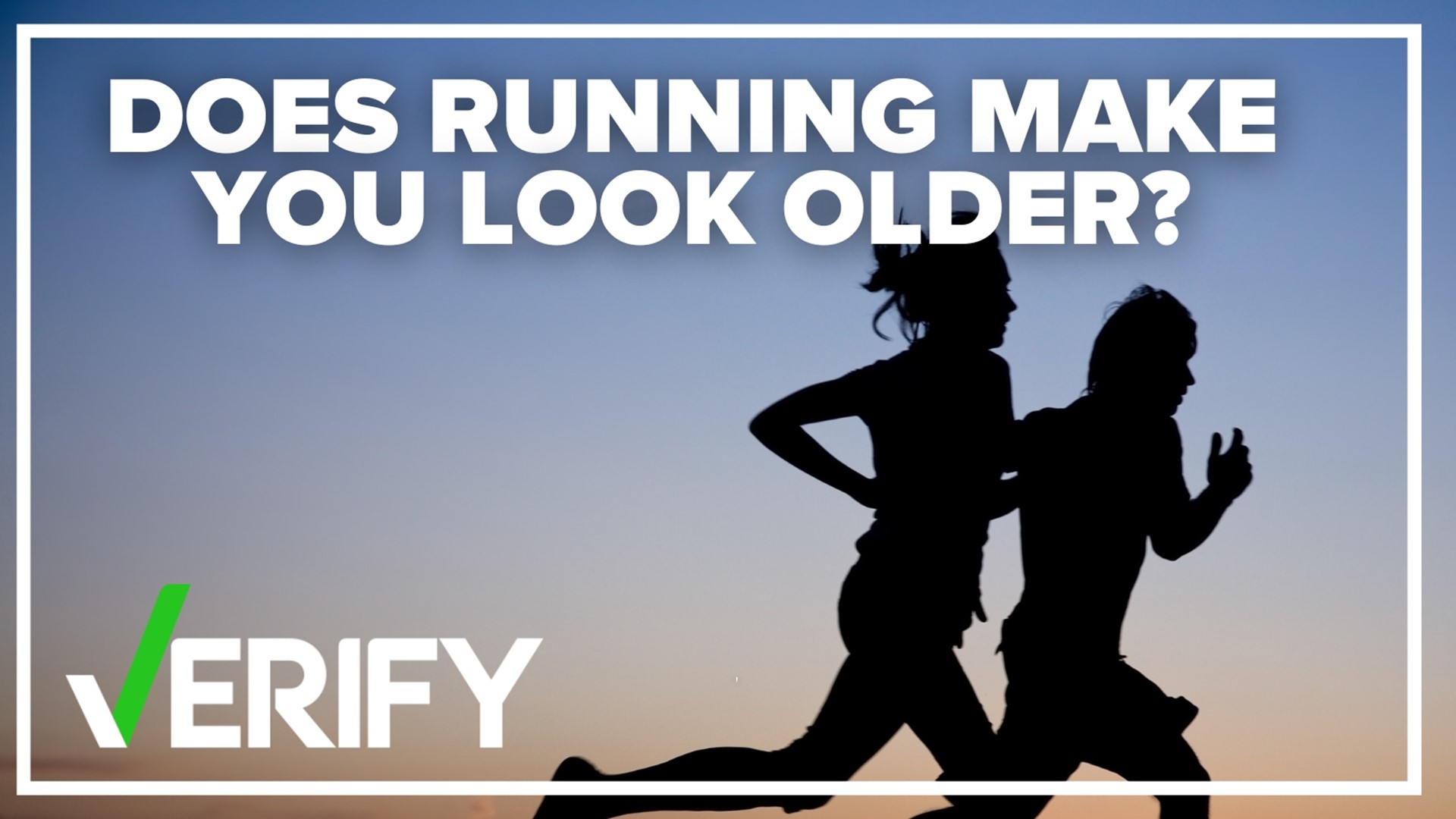CHARLOTTE, N.C. — A viral social media post by a plastic surgeon claims extensive running will cause your face to look older faster. He said it's because of the bouncing associated with running and that your skin loses collagen. But is it true?
If you want to stay looking young, stop running. That's what a new york plastic surgeon is suggesting saying extensive running gives people an older-looking face faster.
OUR SOURCES:
WHAT WE FOUND:
This TikTok video by New York Plastic Surgeon Gerald Imber has gotten almost three million views. He said long-distance running and long-time runners could develop thin and older-looking faces because of the bouncing associated with running.
"If you are an experienced runner, you have done it for 10 to 20 years, it is possible your face could look older than someone who does other types of exercises," Geier said.
Though Geier said this could be true, it's not because your face is bouncing.
"There is no evidence at least that your collagen in your cheeks will start to sag because of repetitive bouncing because that would be the same case with stair masters elliptical and anything like that," Geier said.
There are, however, other factors that can contribute to aging skin for long-time runners.
"Anyone who runs outside or does any outdoor exercise is exposing their face to sunlight, and ultraviolet light will wear your skin to age," Geier said.
According to the Skin Cancer Foundation, regular daily use of SPF 15 can reduce your risk of developing melanoma by 50% and, in turn, prevent premature skin aging. Geier said the fat loss in your face, which can happen when you run, can also make you look older.
"People who do that level of training for an hour or two hours a day or more are very thin. Some of that will come from the face," Dr. Geier said.
Overall, Dr. Geier tells WCNC running is better for you than not, so you can lace up those shoes but be sure to put on that sunscreen.
Contact Meghan Bragg at mbragg@wcnc.com and follow her on Facebook, Twitter and Instagram.
VERIFY is dedicated to helping the public distinguish between true and false information. The VERIFY team, with help from questions submitted by the audience, tracks the spread of stories or claims that need clarification or correction. Have something you want VERIFIED? Text us at 704-329-3600 or visit VERIFY.

